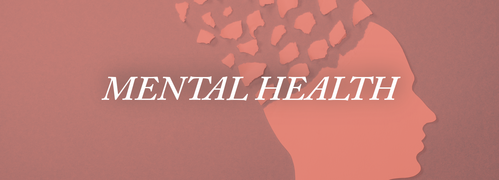
The priority of any addict is to anaesthetize the pain of living—to ease the passage of the day with some purchased relief. - Russell Brand
We hold on to our addictions simply because they are that: ours. We feel as though their loss would leave us with nothing, might even kill us. Yet by the grace of God and through his power, we can be free of all, yes all, ties that bind us to sin. But first, we must be willing to let them go.
We hold on to our addictions simply because they are that: ours. We feel as though their loss would leave us with nothing, might even kill us. Yet by the grace of God and through his power, we can be free of all, yes all, ties that bind us to sin. But first, we must be willing to let them go.
“Anxiety is a thin stream of fear trickling through the mind. If encouraged, it cuts a channel into which all other thoughts are drained.” - Arthur Somers Roche
In this Parent Guide, we’ll discuss both these temporary feelings of anxiety and longer-term anxiety disorders, as well as how parents and caring adults can walk through these issues with the rising generation.
In this Parent Guide, we’ll discuss both these temporary feelings of anxiety and longer-term anxiety disorders, as well as how parents and caring adults can walk through these issues with the rising generation.
Living with ADHD is like being locked in a room with 100 Televisions and 100 Radios all playing. None of them have power buttons so you can turn them off and the door is locked from the outside. - Sarah Young “My favorite question on the autism diagnosis form is: would you rather go to the theater or a museum?” begins a TikTok video by user @rubyofmyeye, before continuing to explain her amusement; “because I get overstimulated at a theater, and understimulated at a museum, so, neither.”
"Every child, every person needs to know that they are a source of joy; every child, every person, needs to be celebrated. Only when all of our weaknesses are accepted as part of our humanity can our negative, broken self-images be transformed." - Jean Vanier This guide helps parents know more about the troubling incidence of depression and anxiety disorders in the lives of young people. Like our other Parent Guides, this tool provides knowledge, references, and faith-based encouragement on the subject to help parents connect with their kids.
We turn skeletons into goddesses and look to them as if they might teach us how not to need. - Marya Hornbacher (Wasted: A Memoir of Anorexia and Bulimia) As there are a myriad of websites and organizations dedicated to educating the public about eating disorders and to helping sufferers find lasting recovery, the goal of this guide will be to help give you information on how technology and current culture uniquely contribute to the issue of teens and eating disorders.
“It’s not time to worry yet.” These words were written by Harper Lee in her classic novel, To Kill a Mockingbird, and they certainly ring true when it comes to our own parental propensity to worry. Will there ever be a convenient time to worry? Hardly! But worry has an ugly way of rearing its head at inconvenient times, as we all know. We try not to worry, but our attempts often seem futile, which in turn makes it hard to be confident in helping our kids navigate through their own fear and worry. Fear is real—in fact, God created it —but worry is never beneficial. By looking a little closer at the problems of fear and worry, we can learn where they come from, what they are at their root, how to overcome them through the power of God, and how to help our kids do the same.
You’re Not Alone! Let’s acknowledge the elephant in the room: This is a scary topic that no parent wants to even think about. Which is completely understandable. After all, God created us for flourishing, abundant life, and relationship with him, not pain, sadness, or the desire to no longer live.
Unfortunately, our broken world is full of dysfunction, disorder, and sin, all of which disrupt and decay the beautiful world God lovingly created for us. So what do we do when that reality hits home, when our children struggle with very real issues? How do we help our kids find physical, mental, emotional, and spiritual healing?
First, let us assure you that if you or a loved one is struggling, you’re not alone.
Unfortunately, our broken world is full of dysfunction, disorder, and sin, all of which disrupt and decay the beautiful world God lovingly created for us. So what do we do when that reality hits home, when our children struggle with very real issues? How do we help our kids find physical, mental, emotional, and spiritual healing?
First, let us assure you that if you or a loved one is struggling, you’re not alone.
